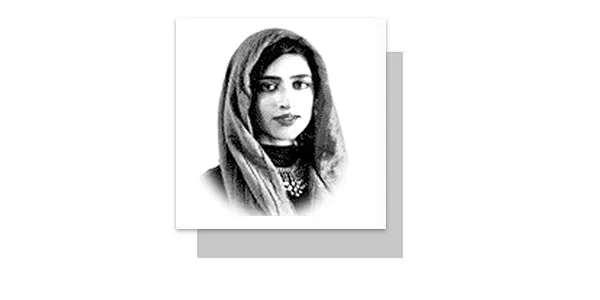THE political rivalry has led to alarming centrifugal tendencies in Pakistan. Is it becoming apparent that constitutional procedures and democratic politics are not enough to heal the divisions and cleavages that currently exist?
Political instability is not accidental. It is man-made. The institutional delicacies and structural shortfalls beget instability and fluctuation; however, those inadequacies ultimately hark back to the judgments, decisions, and/or actions of men. Throughout history, it is the fallacies, delusions, and errors of leaders, who have pulled down and exploited states for their ‘personal’ profits and/or because of their incompetence. In the contemporary era, a frail and immature leadership along with the ‘à la carte’ application of laws continue to abrade fragile polities in Pakistan that already function on the cusp of collapse.
Pakistan’s political system is characterised by an opaque democracy. In the face of the 2024 general election, political parties find themselves swallowed disconcertingly into a maelstrom of anomic internal and external conflicts. In the aftermath of two years of political turmoil, following the removal of Khan in 2022, independent candidates supported by the PTI managed to secure the highest number of seats, followed by the PMLN and the PPP. These results have befuddled many individuals and institutions, both domestically and internationally. A widespread impudent and barefaced pre-rigging against a particular party had people thinking of results to come out otherwise. Voters have emerged as active enablers of political say and a powerful force that could influence political outcomes. However, the post-election atmosphere descended into deplorable chaos and confusion.
People’s anger at political elites and apprehension about swift political changes have been among the primary factors of political upheaval in Pakistan. Attitudes towards politicians play a significant role in determining people’s satisfaction or dissatisfaction with their country’s democratic system. When leaders go against the values they claim to uphold and protect, it leads to forlorn citizens questioning the integrity of the political system. If the rights-based system is only applied to a certain group, it reinforces double standards and allows for impunity to spread. On both the right and left of the political spectrum, anti-establishment leaders, parties and movements have grown, questioning the core values and establishments of liberal democracy. The current state of political instability can be traced back to the actions of both the political and ‘apolitical’ elite. These individuals, who hold significant power and influence, have failed to uphold their responsibilities to the public, resulting in a breakdown of trust and a sense of disillusionment among the people.
If a state is unable to limit the power of institutions, be that military, judiciary and/or parliamentary, it becomes a dictatorship. And, on the other hand, a government that has no power and is bounded by too many constraints is anarchic. The wicked problem of political instability in Pakistan is intensely marinated by both factors. Before the proliferation of anarchic entities and nostrums, it is incumbent upon the institutions of Pakistan to ensure that the nation’s apparatus is not subject to the control of a self-interested elite.
In this regard, it is crucial to establish a robust and transparent decision-making framework that guarantees impartiality, and that serves the best interests of the Pakistani populace. The nation’s leadership must be held accountable to the public and must actively work towards the establishment of a strong, democratic system that is not amenable to influence by vested interests. Such efforts will not only serve to ensure the stability and growth of Pakistan but will also enhance its standing in the global arena, engendering a sense of confidence and trust in the nation’s governance.
—The writer is a PhD candidate for Politics and IR at Keele University.
Email: [email protected]










